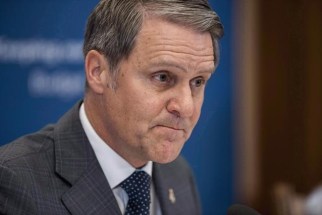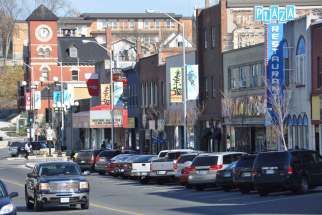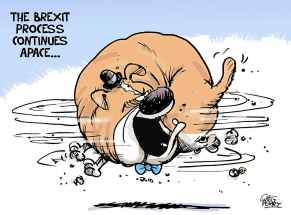No cannabis for sale in Ontario’s cottage country Potential operators in Kenora and surrounding communities fail to win provincial-licence lottery
Read this article for free:
or
Already have an account? Log in here »
To continue reading, please subscribe:
Monthly Digital Subscription
$0 for the first 4 weeks*
- Enjoy unlimited reading on winnipegfreepress.com
- Read the E-Edition, our digital replica newspaper
- Access News Break, our award-winning app
- Play interactive puzzles
*No charge for 4 weeks then price increases to the regular rate of $19.00 plus GST every four weeks. Offer available to new and qualified returning subscribers only. Cancel any time.
Monthly Digital Subscription
$4.75/week*
- Enjoy unlimited reading on winnipegfreepress.com
- Read the E-Edition, our digital replica newspaper
- Access News Break, our award-winning app
- Play interactive puzzles
*Billed as $19 plus GST every four weeks. Cancel any time.
To continue reading, please subscribe:
Add Free Press access to your Brandon Sun subscription for only an additional
$1 for the first 4 weeks*
*Your next subscription payment will increase by $1.00 and you will be charged $16.99 plus GST for four weeks. After four weeks, your payment will increase to $23.99 plus GST every four weeks.
Read unlimited articles for free today:
or
Already have an account? Log in here »
Hey there, time traveller!
This article was published 01/04/2019 (2448 days ago), so information in it may no longer be current.
Marijuana has been legal for almost half a year, so Manitobans who have cottages in Ontario might reasonably expect easy access to some herbal relaxation this spring and summer.
First Ontario cannabis stores open doors
Customers lined up to purchase pot at Ontario’s first brick-and-mortar cannabis stores on Monday, but fewer than half of the province’s government-licensed outlets were ready to open.
Customers lined up to purchase pot at Ontario’s first brick-and-mortar cannabis stores on Monday, but fewer than half of the province’s government-licensed outlets were ready to open.
The Progressive Conservative government planned to have 25 private stores launch on April 1, but some were still working through a lengthy approval process.
Premier Doug Ford defended his government’s decision to hold a lottery to determine who could apply for store licences, saying more shops would be opening soon.
“Over the next few weeks we’ll get it done,” he said. “If it means another week or two to get it right, let’s do it.”
Recreational cannabis has so far only been available for purchase legally in Ontario through a government-run website.
The Alcohol and Gaming Commission, which is overseeing the vetting process, said 10 stores were given the green light to open Monday — three in Ottawa, two in Kingston and one each in Toronto, Brampton, Burlington, London, and St. Catharines.
Ontario’s Tory government had initially said there would be no cap on the number of retail shops after pot was legalized. In December, citing national supply issues, the government said it was issuing licences to just 25 stores.
Stores that fail to open Monday face escalating penalties — failing to open a store Monday results in a $12,500 draw down on a letter of credit, while not opening by the end of April means applicants risk losing their entire $50,000 letter of credit.
NDP Leader Andrea Horwath slammed the government for the delays in store openings, saying it had time to put a proper system in place last fall but failed.
“This lack of access we have today is squarely at the feet of Mr. Ford and his government,” she said.
Interim Liberal leader John Fraser said the black market will flourish because of the lack of legal stores. The previous Liberal government had planned to open as many as 40 government-run cannabis store before the Tories moved to a private store model.
Green party Leader Mike Schreiner said the government plan is failing the public.
“The competition here is between organized crime and private stores,” he said. “Ten stores across the province is not going to put a dent in organized crime.”
— The Canadian Press
But on Ontario’s first day of legal bricks-and-mortar cannabis stores, there are none to be found in northwestern Ontario’s cottage country — not in Kenora, not in Dryden, not in Fort Frances and not even in Thunder Bay or Sault Ste. Marie.
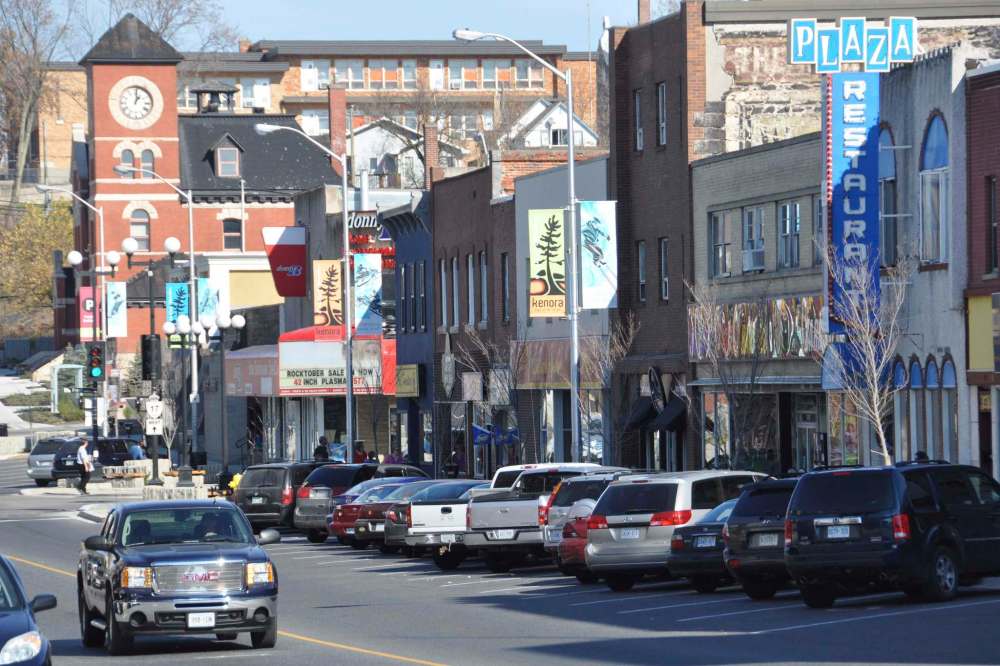
Kenora council has already approved the possibility of legal cannabis stores, said mayor Dan Reynard.
“It’s now legal within Canada, so people are going to be looking for that outlet, so why not be a part of it?” he said.
Still, Reynard doesn’t expect a licensed cannabis store the city this year.
“But hopefully by late 2020, early 2021, we’ll be able to move forward because I know there are individuals that have expressed a desire to open an operation in Kenora,” he said.
“If there isn’t an outlet for people to legally purchase marijuana products… it certainly won’t do anything to curtail the illegal market within northern Ontario.”
After taking power last summer, Ontario’s Progressive Conservative government threw out the previous Liberal government’s plan to open provincially operated cannabis retail stores and started preparing for private cannabis outlets, but in December, the Ontario government said it would only issue 25 licences for private stores to open on April 1, citing a shortage of cannabis from government-regulated producers.
Just two of those private store licences were assigned to Ontario’s enormous northern region, which stretches from Kenora in the west to North Bay in the east. The two winners of a provincial lottery process to apply for those northern Ontario licences are both planning to open locations in Sudbury, a 16-hour drive east of Kenora. Neither licence has yet been issued by the Alcohol and Gaming Commission of Ontario.
Even with no physical locations to buy legal cannabis in northwestern Ontario, adult Manitobans who want to enjoy some weed at an Ontario cottage can still order online from the provincially operated Ontario Cannabis Store. They’ll need a delivery address within Ontario, and will have to be present at that address to sign for the package when it arrives.
But online cannabis shopping isn’t for everyone, said lawyer David Wood, a partner with Borden Ladner Gervais who focuses on cannabis-related issues.
“(No) interaction you’re going to get over the internet is going to replace talking to a human being in person, especially with a product that is a lot more heterogeneous than most people think,” said Wood, who has visited licensed cannabis stores in B.C., Alberta and Saskatchewan.
Employees at those stores tend to be enthusiastic about helping shoppers choose an appropriate cannabis product, said Wood.
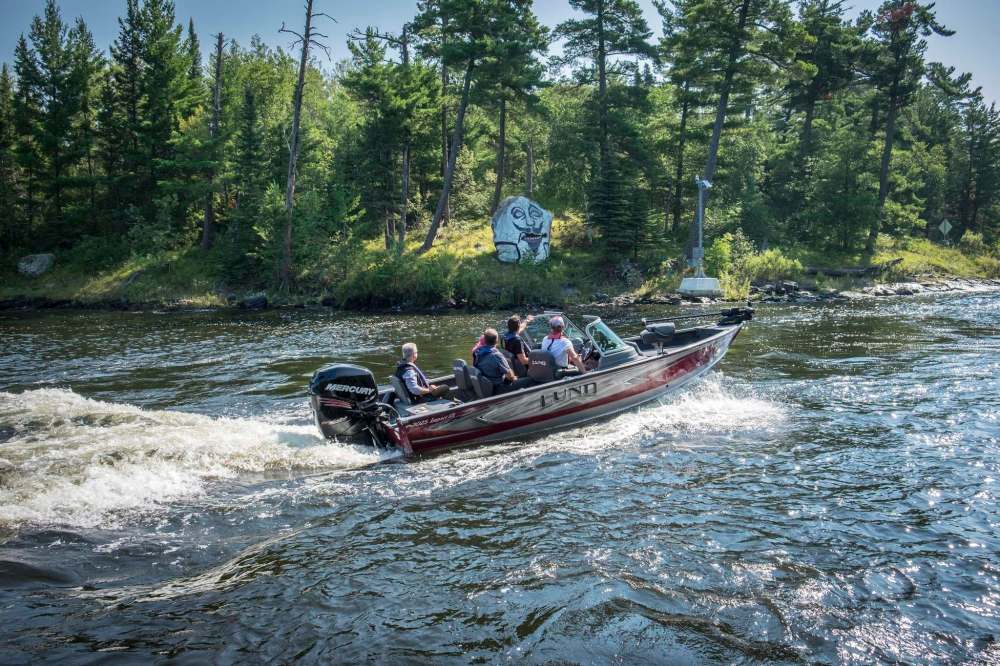
“It makes it more difficult for people to choose regulated (cannabis) over illicit when there are no storefronts,” he said.
It is legal for Manitobans to bring their own stash across the provincial border into Ontario or any other province, Wood pointed out.
Up to 30 grams of legally acquired cannabis can be carried in public without breaking the law. Manitoba law requires that cannabis being transported in a vehicle be stored in the trunk or behind the back seats, where it isn’t “readily accessible” to passengers.
In Ontario, cannabis in a car must be packed in baggage that is “fastened closed or is not otherwise readily available to any person in the vehicle”.
As Kenora waits for its own cannabis store, Reynard expects the city’s residents might actually turn to Winnipeg for legal marijuana.
“Until there’s an option in Kenora, I think you’ll see people going and purchasing product in Manitoba.”

solomon.israel@freepress.mb.ca
@sol_israel



